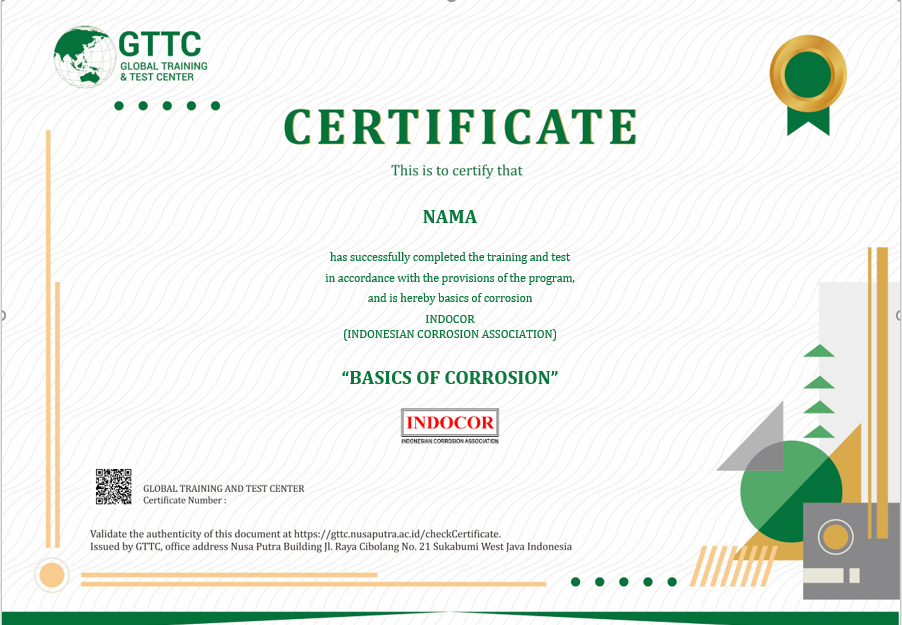Basics of Corrosion Training and Testing
Description
Basics of Corrosion Training and Testing
Training and testing in corrosion cover a range of topics aimed at understanding, preventing, and mitigating corrosion in various materials and environments. Here are the basics:
Introduction to Corrosion: Understanding what corrosion is, its types (such as uniform corrosion, pitting corrosion, crevice corrosion, etc.), and its impact on different materials.
Corrosion Mechanisms: Learning about the chemical and electrochemical processes involved in corrosion, including oxidation-reduction reactions, formation of corrosion products, and factors influencing corrosion rates.
Material Properties: Studying the properties of different materials (metals, alloys, polymers, ceramics) and how they influence their susceptibility to corrosion.
Environmental Factors: Exploring the role of environmental conditions (moisture, temperature, pH, pollutants, etc.) in corrosion processes.
Corrosion Prevention and Control: Strategies for preventing or controlling corrosion, such as material selection, protective coatings, inhibitors, cathodic protection, and design considerations.
Testing and Evaluation: Various techniques for testing and evaluating corrosion, including laboratory tests (such as salt spray testing, electrochemical tests, accelerated corrosion tests) and field inspections.
Standards and Regulations: Familiarizing with industry standards, codes, and regulations related to corrosion control and prevention, ensuring compliance with relevant guidelines.
Failure Analysis: Understanding the process of failure analysis to identify the root causes of corrosion-related failures and develop appropriate solutions.
Maintenance and Monitoring: Implementing maintenance practices and monitoring systems to detect and address corrosion issues in a timely manner, extending the lifespan of materials and structures.
Case Studies: Examining real-world case studies of corrosion failures and successful corrosion management strategies to gain practical insights and lessons learned.
Training programs in corrosion often include both theoretical knowledge and hands-on practical sessions, while testing typically involves conducting experiments, analyzing data, and interpreting results to assess the corrosion resistance of materials or evaluate the effectiveness of corrosion prevention measures.

Offered by Indocor
Authorized Partner

- Due: 31 Dec 2025
- Type: Training & Test
- Category: Other Programs
